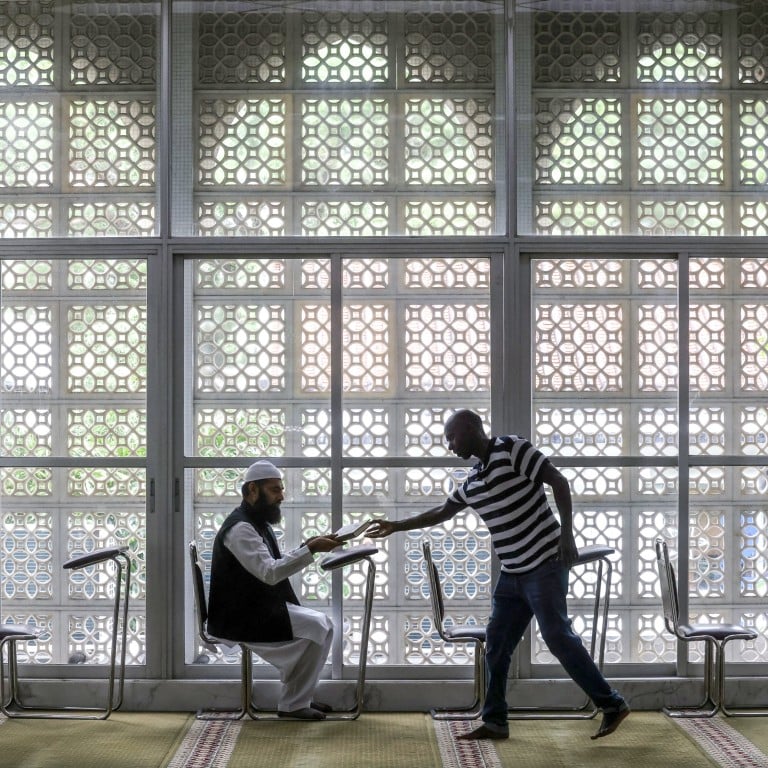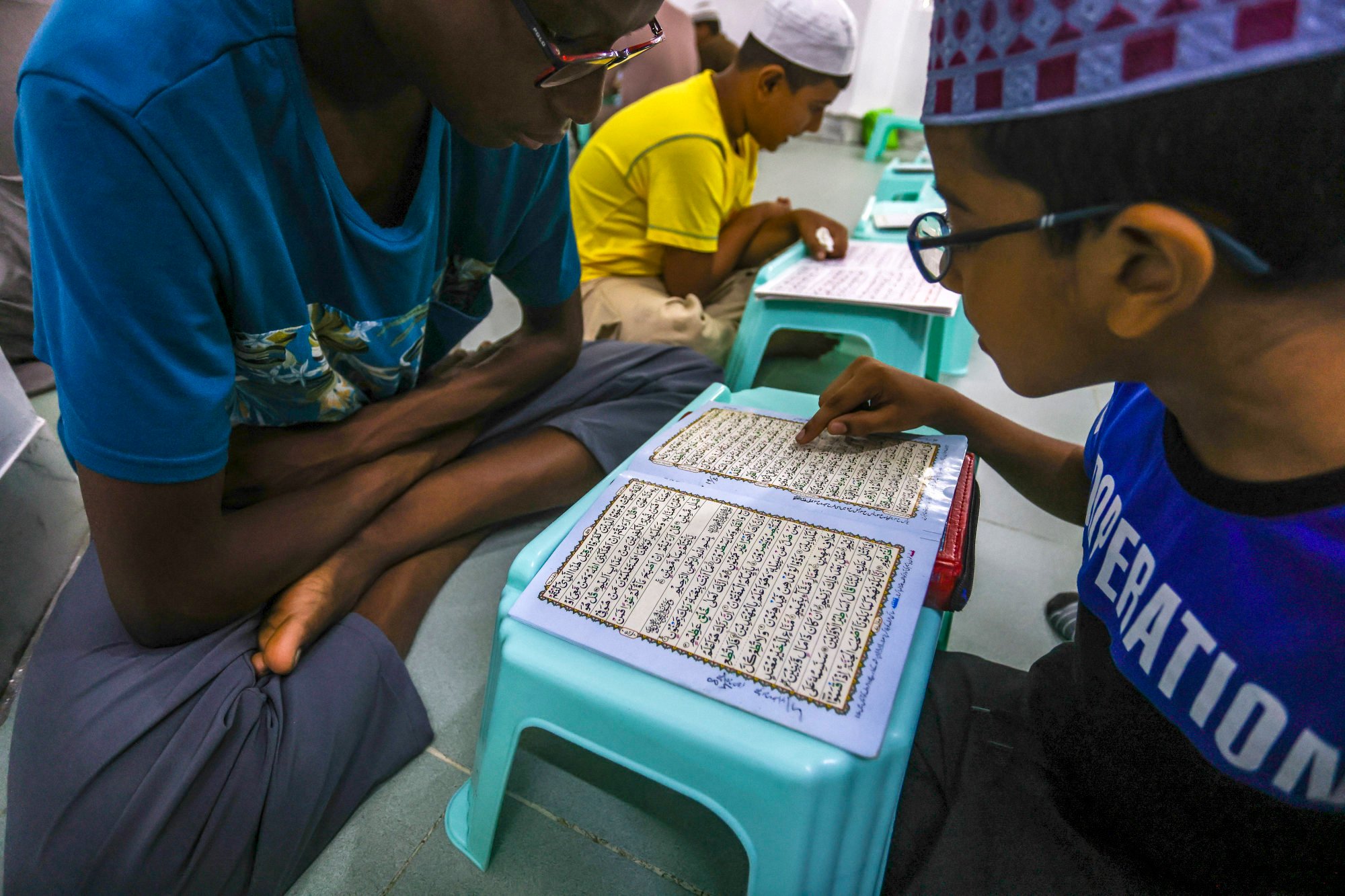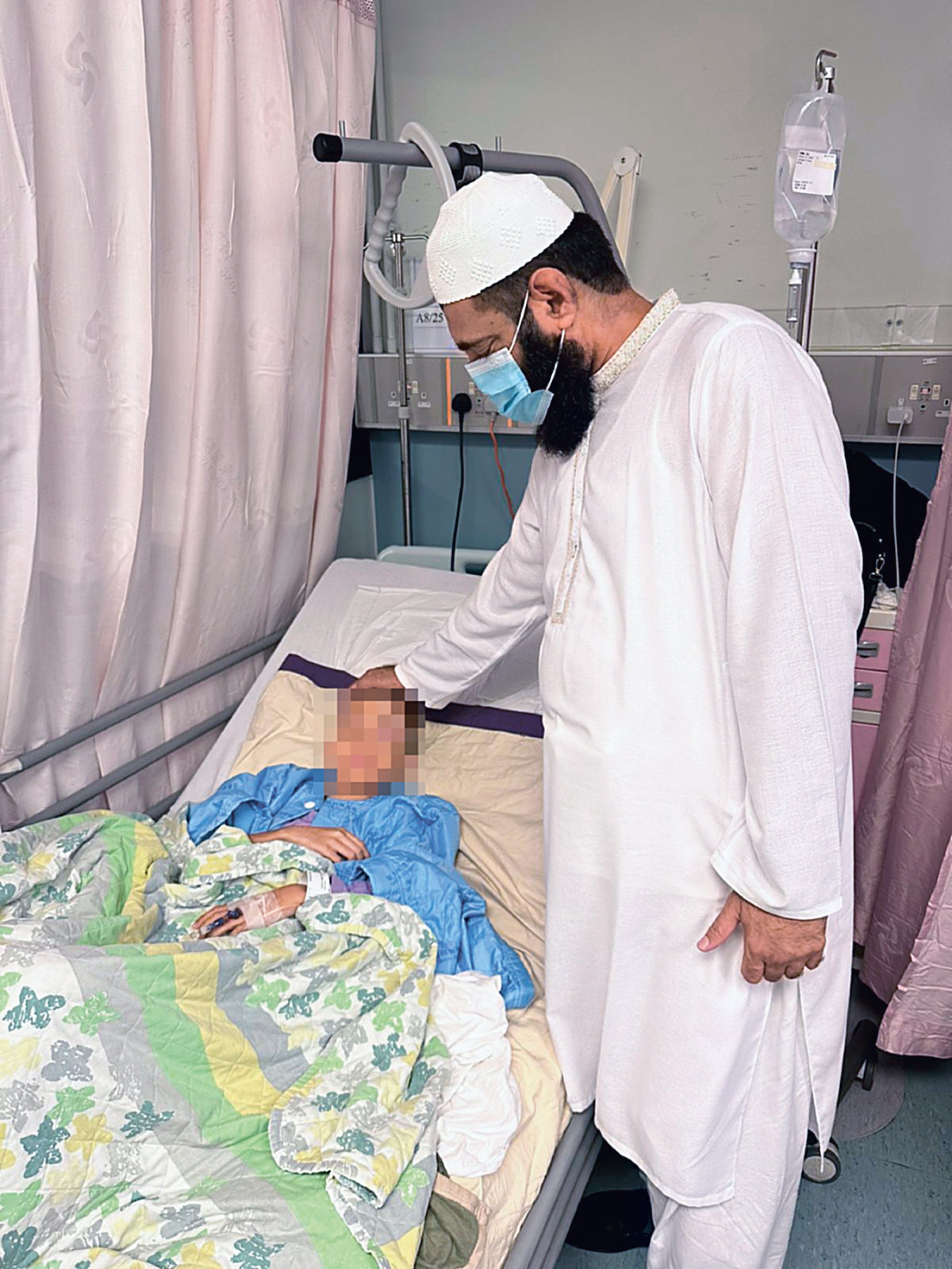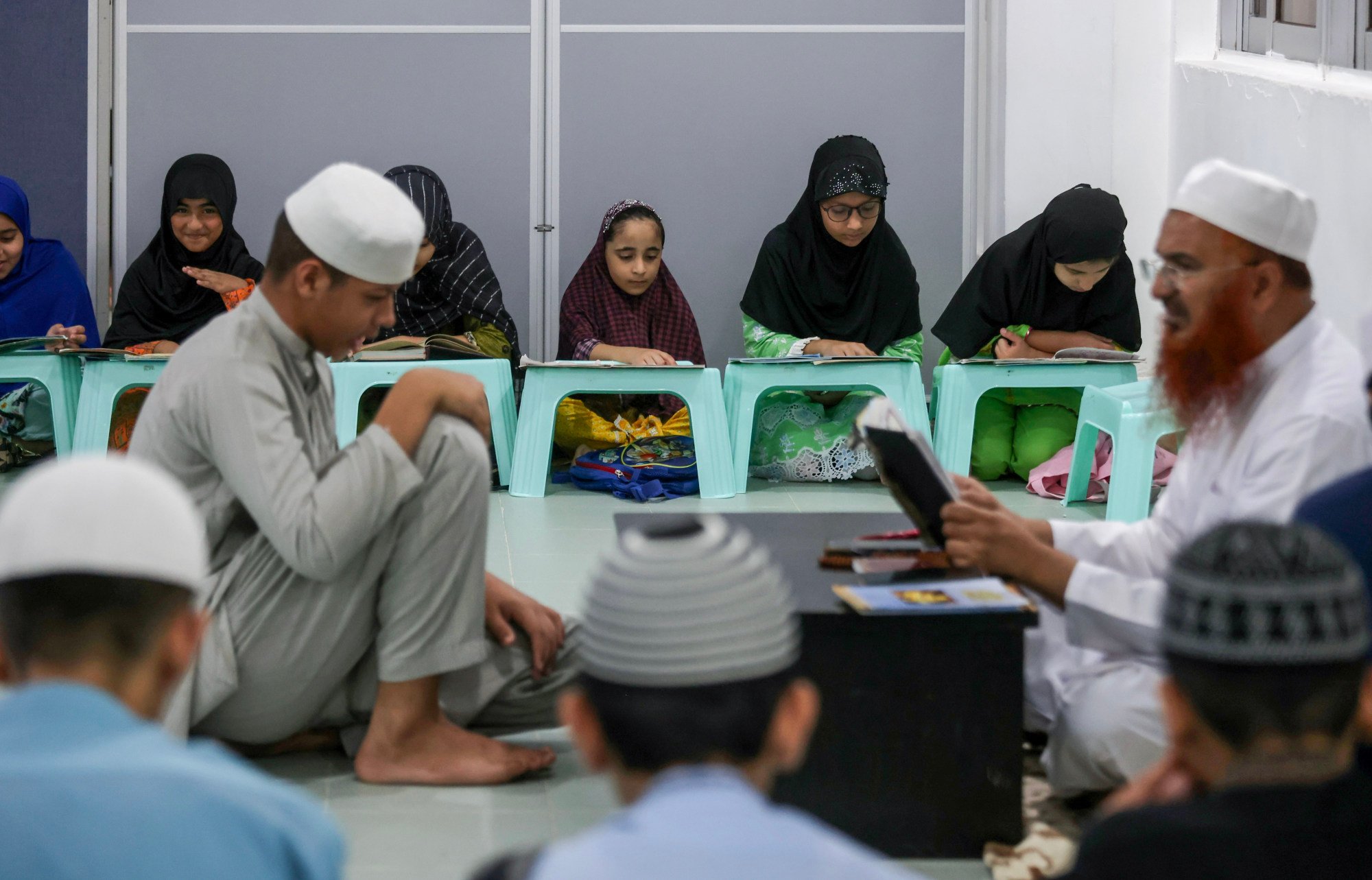
Slapping incident: Hong Kong’s chief imam tells religious teachers ‘we can’t punish students for learning the Koran’
- Community responds to case of boy who needed surgery after religious teacher allegedly slapped him
- Chief imam convenes meeting with all religious teachers to emphasise proper conduct of Islamic lessons
Seated cross-legged on the white-tiled floor of their classroom, about 30 children aged eight to 15 rocked gently from side to side, reciting verses in Arabic from the Koran, Islam’s holy book, at a religious school in Hong Kong.
A mix of girls and boys, they are all from ethnic minority communities and dressed in traditional Islamic clothes.
The children are attending a religious class at the Kowloon Mosque and Islamic Centre on Nathan Road, Tsim Sha Tsui.
“They sing the words to remember them better. The swaying helps them keep the rhythm,” said chief imam Mufti Muhammad Arshad, leader of Hong Kong’s Muslim community of 300,000.

An Islamic religious school, or madrasa, was in the spotlight after an incident on August 5 when a 13-year-old student was allegedly slapped during a Koran reading class.
The boy had to undergo surgery for a detached retina. The 35-year-old man who was subsequently arrested was a volunteer teacher at the centre in Quarry Bay.
The incident sparked outrage, with senior Muslim figures calling for more to be done to safeguard children and improve the quality of teachers at the city’s Islamic religious centres.
Hong Kong religion teacher charged with slapping boy, 13, during lesson
Some in the community acknowledged that while the incident was rare, it was not isolated.
Chief imam Arshad met all religious teachers, or ustadhs, for a training session on Saturday to emphasise what to do and not do during their classes.
“I will tell all ustadhs that beating is a form of punishment and we cannot punish students for learning the Koran,” he told the Post before the meeting.
Arshad oversees most Islamic places of worship in the city, but the Quarry Bay madrasa is privately run and not under his jurisdiction.
Hong Kong police arrest man for allegedly slapping pupil, causing eye injury
“As a religious figure, I have a connection with them but no authority, but I have invited them to attend the training,” he said.
About half of Hong Kong’s Muslims are Indonesian, 17 per cent are Chinese and 10 per cent Pakistani, according to official data.
There are 34 mosques and madrasas. The larger religious schools have between 100 and 200 students.
The madrasas offer Koran-reading and Arabic classes for children and adults, with teachers mainly of Pakistani origin.

Arshad told the Post that the Kowloon Mosque and Islamic Centre, one of the city’s oldest and largest mosques, had 10 teachers.
“We don’t appoint any teachers from abroad, we hire Hong Kong residents from within the community,” he said, adding that all new teachers had to clear an interview process and he checked their experience and references.
He is also responsible for inspecting all madrasas under his jurisdiction to ensure that they keep in line with the principles of Islam, which forbids the use of corporal punishment.
The city’s mosques and madrasas do not provide secular education and are not regulated or supported by the government.
Family seek Hong Kong police help over alleged assault of boy at learning centre
Parents donate around HK$200 (US$26) to send their children to religious classes. The Kowloon mosque had about 300 students and the donations covered only about a fifth of the teachers’ salaries, according to Arshad.
Social worker Zaiq Ali, a Pakistani Muslim raised in Hong Kong, said he attended Koran lessons at a madrasa in the city.
“Memorising the Koran is a means of preserving and protecting this divine message in its original form,” he said.
While many Muslim parents sent their children to religious classes at mosques and madrasas, Ali said some preferred to teach them themselves or go online for lessons with a teacher in Pakistan or other places.
He said the madrasas provided Muslims with a sense of community. “Some have board game clubs and organise outdoor activities during the school holidays to support families,” he added.
Adeel Malik, founder of the Muslim Council of Hong Kong, said madrasas were not only where members of the community learned Arabic and Islam, but also where they interacted and made friends.

He hoped the recent incident would not tarnish the reputation of the religious education centres.
Responding to the incident, the council suggested ways to keep children safe, including having a code of conduct signed by all teachers and installing CCTV cameras in madrasas.
“We already know of madrasas in Hong Kong starting to implement our suggestions,” he said.
In a social media post, the council earlier said the August 5 incident “was not an isolated incident” but also urged the public not to view it as a religious one.
“When a student is hit in a school in Hong Kong, we do not say it is a Chinese problem,” Malik said.
Lawmaker Doreen Kong Yuk-foon agreed that a code of conduct would be beneficial for the religious teachers, including volunteers at the madrasas, which do not fall under government supervision.
“There should be some standards, even if they are volunteers, they must meet certain requirements and follow a code of conduct,” she said.
“We should also provide the same level of protection to ethnic minority groups as we do to those studying in other training centres.”

